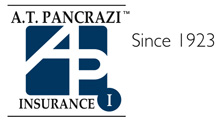A.T. Pancrazi Insurance Directors & Officers Liability Insurance

Directors and Officers (D&O) are subject to potential personal liability arising out of their managerial decisions. In many instances, the company’s bylaws require that it defend and/or indemnify these individuals for damages awarded against them for such decisions.
Coverage the policy provides:
- The board of directors and key officers of the corporation make the decisions that determine the direction and performance of the organization.
- The directors, who are elected or appointed to the board, have a duty to ensure that the corporation is managed in the shareholders’ best interest.
- The board is responsible for determining the corporation’s business strategy and appointing and supervising officers to execute that strategy. The directors thus serve as a link between shareholders and management.
Individuals in need of coverage:
- Directors and officers are fiduciaries of the corporations they serve. As such, they have a duty to avoid conflicts of interest and to exercise care and diligence in managing the affairs of the corporation. In supervising the management of the corporation, the directors are responsible for establishing major policies and procedures, evaluating management’s performance, reviewing the financial status of the corporation, preparing and submitting information about the corporation and its financial condition to shareholders and government regulators, monitoring and authorizing securities transactions (including public offerings), and ensuring that the corporation is in compliance with the myriad federal and state laws and regulations that govern various aspects of the corporation’s activities. A breach of any of these duties can result in a suit against the directors and/or the corporate entity by shareholders.
Type of risk held by a D&O:
- This decision-making responsibility may carry with it a substantial risk of personal liability in connection with suits brought by third parties arising out of the actions or, in some cases, inaction of the directors and officers. This personal liability is distinct from the liability the corporation itself may face. Indeed, in some instances the corporation may assert claims against the directors and officers for damages caused by a breach of the directors’ and officers’ fiduciary duties to the corporation. In other cases, the directors and officers may be concurrently liable with the corporation for actions taken at the direction of the directors and officers.
- Publicly held companies unquestionably face more substantial D&O loss exposures than do privately held companies. In contrast to privately held firms, the ownership of these companies is disparate, comprised of unrelated institutions and individuals who have no qualms about pursuing legal remedies against the corporation or its directors. One of the most pervasive myths surrounding D&O liability is that privately held firms have no exposure to loss and, since most companies are privately held, D&O insurance is often omitted from their insurance programs.
Important points to discuss with your agent:
- Available in a package policy along with other types of executive liability coverage; these programs usually combine D&O, employment practices, fiduciary liability, and sometimes other coverages into a single package policy that costs little more than any one of these would cost as a standalone policy. This approach can make it feasible for privately held companies to purchase D&O insurance.
- Many privately held companies do not purchase D&O insurance. If this decision is made with a realization that their firms are not immune from D&O suits—particularly suits brought by competitors, suppliers, customers, and employees—this can be an appropriate management decision to retain the risk. However, it is important to avoid making the decision by omission—without knowledge that the firm’s directors and officers do indeed face potential D&O liability claims.
